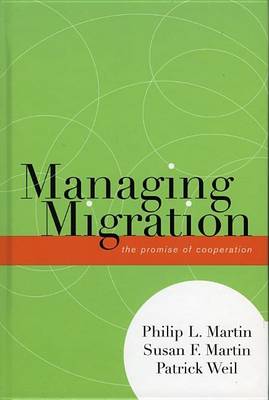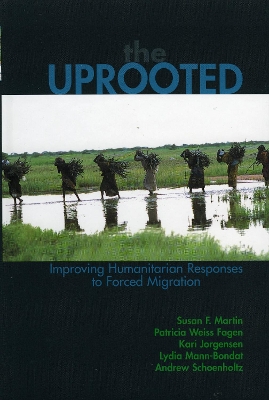Program in Migration and Refugee Studies
2 total works
A growing share of the world's population lives in the 175 developing countries, while global income and wealth are increasingly concentrated in the 25 developed countries. The resulting migration from developing to developed countries is proving difficult to manage at national, regional, and local levels. Managing Migration presents the valuable results of the Cooperative Efforts to Manage Emigration project, a bottom-up effort to identify models and best practices for spurring economic development and respect for human rights in migrant countries of origin. Based on the research of experts from North America and Europe, authors Martin, Martin, and Weil discuss the challenges of managing international migration in the 21st century, present case studies in cooperative migration management, and offer recommendations to overcome the existing challenges. Concluding that there is no one-size-fits-all framework for managing migration, but that there are common elements of best-practice migration, Managing Migration is guaranteed to pique the interest of policy makers and practitioners involved in immigration as well as scholars of geography, anthropology, and international relations.
The Uprooted
by Susan F. Martin, Patricia Weiss Fagen, Kari M. Jorgensen, Andrew Schoenholtz, and Lydia Mann-Bondat
Published 1 January 2005
By conservative estimates about 50 million migrants are currently living outside of their home communities, forced to flee to obtain some measure of safety and security. In addition to persecution, human rights violations, repression, conflict, and natural and human-made disasters, current causes of forced migration include environmental and development-induced factors. Today's migrants include the internally displaced, a category that has only recently entered the international lexicon. But the legal and institutional system created in the aftermath of World War II to address refugee movements is now proving inadequate to provide appropriate assistance and protection to the full range of forced migrants needing attention today. The Uprooted is the first volume to methodically examine the progress and persistent shortcomings of the current humanitarian regime. The authors, all experts in the field of forced migration, describe the organizational, political, and conceptual shortcomings that are creating the gaps and inefficiencies of international and national agencies to reach entire categories of forced migrants. They make policy-based recommendations to improve international, regional, national, and local responses in areas including organization, security, funding, and durability of response. For all those working on behalf of the world's forced migrants, The Uprooted serves as a call to arms, emphasizing the urgent need to develop more comprehensive and cohesive strategies to address forced migration in its complexity.

